
Just before the Japanese parliamentary upper house elections, Prime Minister Shinzo Abe inspected a Japan Coast Guard patrol vessel Ishigaki on the remote Okinawan island of Ishigaki on July 17, to once again display his tough stance on the Diaoyu Islands.
He then made a stern speech to the Japan Air Self-Defense Force stationed on Miyako Island. It seems that Abe visited the two islands with dual purposes in terms of domestic politics and diplomatic strategies toward China.
First, Okinawan residents have long been dissatisfied with the Japanese central government.
By taking advantage of the Diaoyu islands issue, Abe seeks to spread his right-wing political thoughts on Okinawa.
He canvassed there to win a majority of seats so that he could amend the constitution and help the nation break away from restraints imposed at the end of World War II.
Second, the Abe government aims to turn the Ryukyu Islands, the largest of which is Okinawa, into a military frontier against China.
It is predictable that after the upper house elections, the Abe administration will start formulating a new defense policy, with more details on military buildup and preparation against China.
Once the Article 9 of the constitution is revised, the Japanese government will probably consider dispatching maritime Self-Defense Forces, with the excuse of preventing Chinese naval vessels from entering the waters surrounding the Diaoyu Islands.
Moreover, Abe is scheduled to visit the Philippines and other Southeast Asian countries to seek a strategic architecture in the South China Sea and East China Sea against Beijing.
Next year marks the 120th anniversary of the breakout of the Sino-Japanese War (1894-95). With his perilous remarks and actions, Abe may have drawn inspiration from Hirobumi Ito, the culprit of the Sino-Japanese War.
The Meiji government once sent staff secretly to investigate the Diaoyu Islands in 1885, soon after annexing the Ryukyu Kingdom, only to learn that these islands had been named and claimed by the Qing Dynasty. Japan had to negotiate with China if it wanted to claim the islands, but there was no opportunity to do so.
Japan thus started a wanton arms expansion to prepare for war with China.
In 1887, the Japanese government, with Ito as the prime minister, set out an operational plan against China.
Seven years later, Japan launched the Sino-Japanese War via a sneak raid and decided secretly to occupy the Diaoyu Islands before the end of the war. They then colonized Taiwan for 50 years through the Treaty of Shimonoseki.
Today Abe speaks highly of Ito. It is obvious that this wrong outlook on history will lead current policies astray and pose severe threats.
Nonetheless, today's Japan is not yet capable of resuming its militarism and China is no longer a backward state arbitrarily bullied by imperialist powers.
Currently in Japan, progressive forces are being suppressed. For instance, by making some objective remarks on historical issues, including the Diaoyu dispute, Japan's former prime minister Yukio Hatoyama changed some negative views held by the Chinese. However, he was met with malicious personal attacks at home for doing so.
Where the Japanese government will head in the future needs close attention from its own people and the international community at large.
The author is vice director of the Institute of Modern International Relations, Tsinghua University. opinion@globaltimes.com.cn
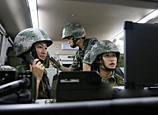
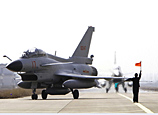
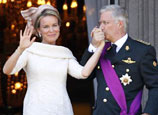
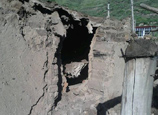





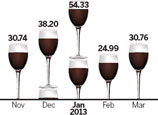






 Solar halo observed in Beijing and Hebei, N China
Solar halo observed in Beijing and Hebei, N China


![]()
